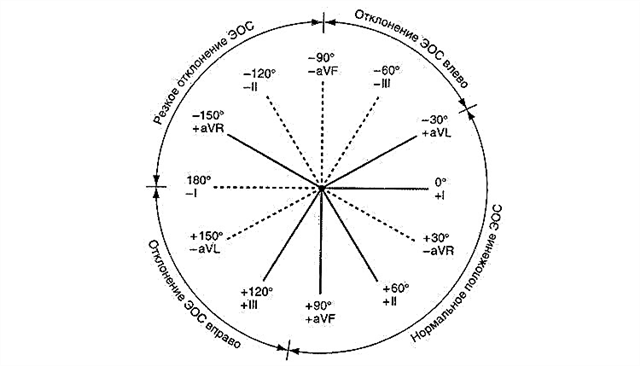The resulting discomfort in the chest may indicate the development of diseases of the heart, back, nervous system. Discomfort manifests itself in the form of burning and tingling sensations. Sometimes the patient is worried about a pulling and sharp pain all day, or only at certain moments. Focusing on how the heart hurts, and from which side it happens, you can recognize the pathological process. However, it is the doctor's responsibility to accurately diagnose, therefore, when the first symptoms occur, you should immediately go to the hospital or call an ambulance.
If your heart is sick, then you need to contact a cardiologist. He will conduct a survey to find out what symptoms are bothering, and how they tried to stop. Having collected the necessary information, the doctor will send the patient for a complete examination. It is not recommended to refuse it due to unwillingness to pay money, since it will not be possible to find out the diagnosis in another way. Focusing on the results obtained, a specialist will be able to understand why a person has pain in the heart.
Often, heart pain occurs due to such pathological processes:
- heart attack;
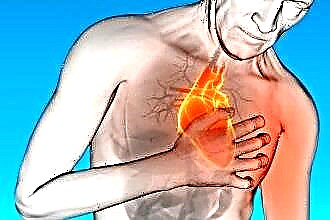
- inflammatory diseases;
- heart valve problems;
- pathological processes not associated with the heart muscle.
It is equally important to know what pains in the chest area are. Such information will help to shorten the search circle and make the diagnosis faster. To understand what they are, this list will help:
- cutting;
- pulling;
- squeezing;
- stitching;
- burning.
Whether the heart can hurt constantly, or the discomfort will manifest itself in paroxysms, depends on the cause of the development of the pathology. In some cases, the discomfort does not leave the whole day, and sometimes it manifests itself only under stress, but is acute. The combination of the information received will help the doctor draw up a treatment regimen and accurately answer how long a person will still have severe chest pain.
Symptoms of a heart attack
Often, every day, the heart hurts due to an impending heart attack. This disease is an acute malnutrition (ischemia), as a result of which myocardial necrosis (infarction) develops. Usually, when answering the question of why the heart hurts due to a heart attack, doctors usually talk about a gradual blockage of the arteries or a detached blood clot that blocked one of the main vessels. The development of this process is influenced by atherosclerosis, excessive physical exertion, constant stress, etc. Pain in the heart begins to appear in patients as early as 1-2 months before the attack. However, in some cases, for example, when a blood clot comes off, the disease develops with lightning speed.
Signs of heart pain before and during an attack are usually as follows:
- Constricting pain. During an attack, it is difficult to understand where and how the heart hurts, because pain is given to the back, upper limb, neck and jaw. They spread mainly to the left half of the body. Heart pain is accompanied by increased sweating, vomiting and constant shortness of breath.
- Heart pain due to stress. The patient may feel discomfort after prolonged physical or mental work. Pains in his heart disappear only after rest or taking the "Nitroglycerin" pill.
- Dyspnea. It often occurs with pain in the heart, indicating an imminent attack. Shortness of breath accompanies the patient almost constantly, for example, lying down
 in bed, while eating and after stress. Immediately before the attack, the patient worries the heart at night, which is why he constantly suffers from insomnia.
in bed, while eating and after stress. Immediately before the attack, the patient worries the heart at night, which is why he constantly suffers from insomnia. - Fast fatiguability. When the heart hurts before a heart attack, the patient gradually begins to feel general weakness. Normal actions take more power from him than before.
- Impotence. If a man's heart hurts due to the gradual blockage of the arteries supplying the heart, then he has an erection problem. It may appear 1-2 years before the attack.
- Swelling. This symptom is the main one for people who want to know how to determine heart pain. The most noticeable edema, indicating violations in the work of the heart muscle, in the legs.
- Heart aches in the morning. Developing myocardial ischemia is often accompanied by this symptom. Sometimes the patient has high blood pressure.
- Apnea. The heart can disturb the patient at night, and this manifests itself in the form of short-term respiratory arrest.
If you suspect it is best to see a doctor. He will tell you how to distinguish heart pain during an attack from other pathological processes and advise methods to help remove discomfort.
Inflammatory heart pathologies
The causes of pain in the heart are quite varied, and sometimes diseases that are characterized by an inflammatory process can cause them. Basically, such pathologies are the result of infection, heart attack, development of malignant formation of impaired metabolism, etc. They are characterized by certain types of pain in the heart and other accompanying symptoms. You can understand this issue in detail by looking at the features of the main diseases:
- Pericarditis. This disease is characterized by inflammation in the area where the heart hurts, namely, in its outer layer. Unpleasant sensations can spread
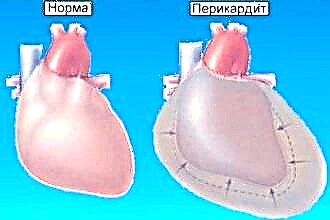 into the collar zone, along the chest and into the arm. It is sometimes difficult to understand where the heart hurts due to increased discomfort when coughing and swallowing. Against the background of the development of pericarditis in patients, the temperature rises, breathing becomes shallow and the pulse becomes more frequent.
into the collar zone, along the chest and into the arm. It is sometimes difficult to understand where the heart hurts due to increased discomfort when coughing and swallowing. Against the background of the development of pericarditis in patients, the temperature rises, breathing becomes shallow and the pulse becomes more frequent. - Myocarditis. Inflammation of the heart muscle is expressed quite sharply. It manifests itself in the form of unpleasant stabbing and aching sensations on the left side of the chest. Such symptoms can clearly indicate how to distinguish heart pain, so usually no special research is required. Discomfort increases after exercise. The resulting heart pains are not stopped by "Nitroglycerin".
Diseases of an inflammatory nature are characterized by constant pain in the heart, which are difficult to stop and are aggravated by stress. Trying to solve the problem on your own in such a situation is a major mistake that can be fatal. That is why, when the first symptoms appear, it is recommended to consult a doctor to find out why the heart hurts and what to take to alleviate the condition.
Heart valve pathology
The heart muscle has 4 valves that must open and close. If violations occur in this process, then the problem can be determined if you understand where the heart hurts, and the nature of the manifestations. Sometimes the symptoms of the disease may not appear for a long time, and then quickly intensify. You can find out how heart pain symptoms manifest due to valve problems by reviewing the list below:
- breathing problems due to shortness of breath;
- dizziness;
- constant pain in the heart of a compressive nature during exertion;
- pressing heartache after inhaling cold air;
- arrhythmia;
- general weakness.
If you do not find out in a timely manner what exactly hurts, then heart failure gradually develops. It manifests itself with the following symptoms:
- The appearance of extra pounds;
- Swelling;
- Bloating.
Due to diseases of the valves, there are pains in the heart of a different nature, depending on the cause of the pathology, but mainly, patients feel compression in the chest.

Cardiomyopathy
Cardiomyopathy does not result from myocardial malnutrition, tumor, or inflammation.Such a diagnosis is largely collective and belongs to the group of heart diseases of unknown origin. It manifests itself as dystrophic changes in cardiomyocytes (heart cells) and against their background, the performance of the heart ventricles is often disrupted.
Understanding how to identify heart pain in cardiomyopathy is not easy, as the disease changes as it develops. It will not be possible to relieve the discomfort by taking "Nitroglycerin", and initially the load does not affect the intensity of the manifestations of the disease in any way.
In the early stages of patients, the symptoms of pain in the heart are ambiguous, namely:
- the nature of the pain can be anything;
- unpleasant sensations are given to various places;
- the pain is not very pronounced, but it does not stop.
As cardiomyomacy develops, the heart does not hurt so often, but the disease begins to manifest itself in paroxysms, especially after physical exertion. The unpleasant sensations that have arisen are sometimes stopped by "Nitroglycerin". At an advanced stage, it is already easier to answer what exactly hurts, since the pain focus has already been formed, has a specific localization.
Arrhythmia
Arrhythmia is an irregularity in the heartbeat that sometimes results in discomfort in the chest. In this case, the causes of pain in the heart depend on the factor that influenced the development of the pathology. Among them are:
- bad habits;
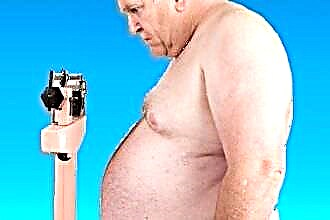
- endocrine disruptions;
- hypertension;
- diseases of the cardiovascular system;
- excess weight;
- oncological diseases;
- taking medications;
- disruptions in metabolism.
It is not recommended to try to eliminate the manifestations of the disease on your own, since specialists should determine pain in the heart during arrhythmias using instrumental examination methods. This is due to the fact that pain is given to the left side of the torso, especially to the arm. This phenomenon is characteristic of many diseases. If you independently stop the symptoms with the help of medicines, then you can hide the development of a serious pathological process.
Heart disease
Heart defects are predominantly congenital. In most cases, they do not appear in any way. However, sometimes the defects cause severe discomfort and can be fatal. You can find out how the symptoms of heart pain manifest in this case from the list below:
- constant pain (stabbing, aching, cutting);
- increased pressure;
- swelling of the lower extremities.
The attending physician should tell what to do with pain in the heart due to a defect. Treatment for this problem usually consists of symptomatic treatment and surgery.
Left valve prolapse
Left valve prolapse is a severe pathological process that is characterized by the following symptoms:
- loss of consciousness;
- dizziness;
- rapid pulse;
- feeling of lack of oxygen;
- headache.

Finding out how to determine heart pain due to prolapse can be by its nature. The resulting discomfort has no connection with stress and manifests itself in the form of pressing and aching pain sensations that are not eliminated by "Nitroglycerin".
Aortic stenosis
Aortic stenosis is a narrowing of the walls of an artery near the valve. It is usually difficult to figure out what exactly hurts at first. The patient has localized unpleasant sensations in the chest, shortness of breath, dizziness and fatigue are manifested. Gradually, the disease develops, and a person may lose consciousness due to a rapid change in body position.
Blockage of a pulmonary artery
Initially, the blockage of the pulmonary artery manifests itself in the form of acute pain when inhaling in the chest area. Unpleasant sensations are not given to other places and are not stopped by "Nitroglycerin". If you do not know what to do in such a situation, then after the following symptoms, more serious symptoms may appear.
- Blue skin.
- Decreased blood pressure.
- Dyspnea.
- Rapid pulse.
Diseases of the aorta
For heart pain, treatment is not always timely, for example, aortic dissection is a case where help is often too late. The severe pain inherent in this pathological process causes loss of consciousness and painful shock. If you do not provide immediate assistance, the person may die.
Patients are often puzzled: how to get rid of pain in the heart, but in fact, discomfort is a consequence of other diseases. Among them are the following common pathological processes:
- Intercostal neuralgia. It is characterized by acute pain, which increases with movement, inhalation, coughing, etc. It can last from 5 minutes to 2-3
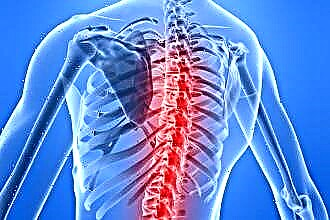 days. Localized in the right or left half of the chest in the intercostal space.
days. Localized in the right or left half of the chest in the intercostal space. - Osteochondrosis. The focus of pathology is located in the cervical or thoracic region. The patient's hands become numb and pain is given to the scapula and neck. Increased discomfort when moving.
- Diseases of the nervous system. Neuroses provoke disruptions in the autonomic division of the nervous system. Patients complain of numerous signs of pathologies, including heart problems. On an ECG and other studies, they cannot be detected. People with diseases of the nervous system often experience panic attacks due to the unexplained cause of their condition. In such a situation, only a psychotherapist can tell you how to get rid of heart pain at home. Other doctors will only confirm the absence of other diseases.
- Lung pathology. Pleurisy and pneumonia often present with pain that resembles heart pain. It intensifies with coughing and deep breathing.
- A teenager's heart hurts. In young people, chest pain can occur due to carnitine deficiency. It is a substance responsible for the supply of nutrition to cells. The lack of carnitine is manifested due to the excessively rapid growth of tissues during this period. Pain caused by physical inactivity is no less common. The heart needs regular exercise to get stronger. Without them, any overload manifests itself as chest discomfort.
In the case of the listed diseases, it is possible to understand how to relieve pain in the heart after an examination, which is aimed at determining the cause of the discomfort that has arisen. Nitroglycerin tablets will be ineffective.
First aid for heart pain
Medicines for heart pain are prescribed by the attending physician based on the diagnosis. It is forbidden to try to pick up medicines on your own, as you can aggravate your condition. But what if the attack catches suddenly? In such a situation, the following instruction will help you understand how to get rid of heart pain:
- First you need to stop running around looking for drugs. Instead, you need to calm down and sit down.
- The room must be well ventilated.
- Breathing should not be limited by clothing, so it is best to unbutton the top buttons.
- If possible, you need to lie down. If the pain subsides, then it is quite possible that the problem is not at all in the heart muscle. With increased discomfort and a feeling of squeezing, we can talk about an imminent attack.
- To improve the condition, it is necessary to put remedies for pain in the heart under the tongue - for example, a "Nitroglycerin" tablet, and then call an ambulance.

After the arrival of the medical team, it is necessary to list the tormenting symptoms to the doctors and say what actions have been taken since the onset of the attack. All this will help to quickly normalize the condition, since you can relieve pain in the heart only by knowing the whole picture.
Painful sensations in the chest have a different nature of manifestations. From them you can roughly understand what torments a person. However, only the attending physician can make an accurate diagnosis, focusing on the symptoms that have arisen and the results of examinations. It is life-threatening to look for what to take in case of pain in the heart - there are many diseases that are only disguised as pain in the chest.


 in bed, while eating and after stress. Immediately before the attack, the patient worries the heart at night, which is why he constantly suffers from insomnia.
in bed, while eating and after stress. Immediately before the attack, the patient worries the heart at night, which is why he constantly suffers from insomnia. into the collar zone, along the chest and into the arm. It is sometimes difficult to understand where the heart hurts due to increased discomfort when coughing and swallowing. Against the background of the development of pericarditis in patients, the temperature rises, breathing becomes shallow and the pulse becomes more frequent.
into the collar zone, along the chest and into the arm. It is sometimes difficult to understand where the heart hurts due to increased discomfort when coughing and swallowing. Against the background of the development of pericarditis in patients, the temperature rises, breathing becomes shallow and the pulse becomes more frequent.
 days. Localized in the right or left half of the chest in the intercostal space.
days. Localized in the right or left half of the chest in the intercostal space.

